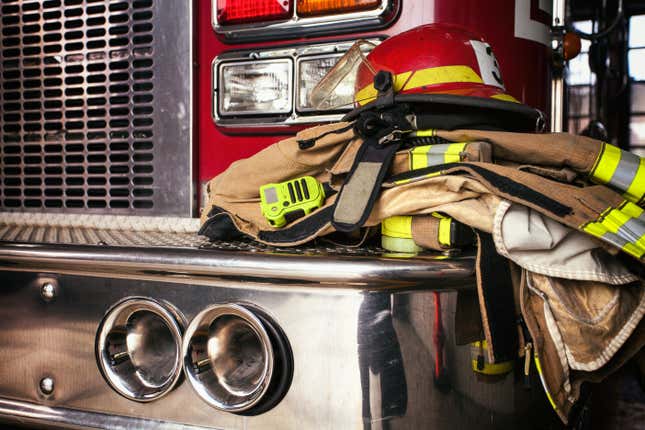
Back in July, Black firefighters in Winston-Salem, N.C., protested outside Station 1 firehouse, demanding the termination of the current chief of the fire department and asking the city to seriously address years of racial and sexual harassment claims in the department.
With little movement from the department or the city, those firefighters escalated their complaints last month, filing a grievance that, once again, called for Chief William “Trey” Mayo to be fired for encouraging a toxic, racist workplace culture.
Among the firefighters speaking out is Timika Ingram, who recently told the Associated Press she endured “pain, sleepless nights, suffering, anxiety” as a result of her coworkers’ harassment; one doctor said the stress she experienced at the job caused her to develop lupus.
It wasn’t the job itself—a harrowing, risky and occasionally life-threatening one—that caused Ingram to feel this way. As she tells the AP, she had trained hard to become a firefighter. What got to her was all the experiences at the station house: Ingram says firefighters placed nails under the wheels of her pickup truck; threw her new cell-phone on the roof of the station house, making her unavailable to her young children; stole her food and hid her uniforms; and poured tobacco juice in her boots.
Thomas Penn, a 28-year veteran of the fire department and leader of the group Omnibus, an organization of Black firefighters agitating for change in the city, said conditions for Black firefighters have actually degraded under Chief Mayo.
“It’s a festering problem that has become even more disease-ridden and even more detrimental to the life of the individuals who work here,” Penn told the AP.
The group claims that two white captains discussed running over Black Lives Matter demonstrators this year; in 2017, a firefighter taking a rope and knots class made a noose.
Winston-Salem is far from alone. New York firefighters have filed multiple lawsuits against the FDNY over the years for racism and discrimination. But at some departments, like the one in Winston-Salem and the Linden Fire Department in New Jersey, Black firefighters say the discrimination they’ve experienced has gotten even worse in recent years.
Earlier this month, two former Linden firefighters sued the city for years of racist and abusive behavior from their coworkers and now-retired Chief Joseph Dooley. Offensive jokes about Black people were standard fare under Dooley—“almost a daily event”—said the suit. One firefighter said he heard the chief and another firefighter use racial slurs, and was himself once referred to as a “strong ape.”
The Black former firefighters also pointed out they weren’t given the same advancement opportunities as their white peers. These allegations—ranging from offensive jokes, explicit targeting and harassment, and the denial of professional opportunities—echo across other states. As the AP reports, over the last year, similar suits have cropped up in Lansing, Mich., and Denver, Colo.
The Winston-Salem Department has, for its part, pledged to do a “climate assessment” of the agency to evaluate the fire department’s workplace culture, especially as it relates to how marginalized employees—Black people, women, gender non-conforming and LGBTQ firefighters—are treated. A report was expected at the end of the year, with Winston-Salem City Manager Lee Garrity shrugging off the urgency of such a report.
“We’d had very few grievances or complaints in the last couple of years,” said Garrity. “But I am sure there are opportunities for improvement.”
One major improvement for the agency: actually following through on its word. As of early November, the climate assessment hadn’t even yet begun, Penn said.

